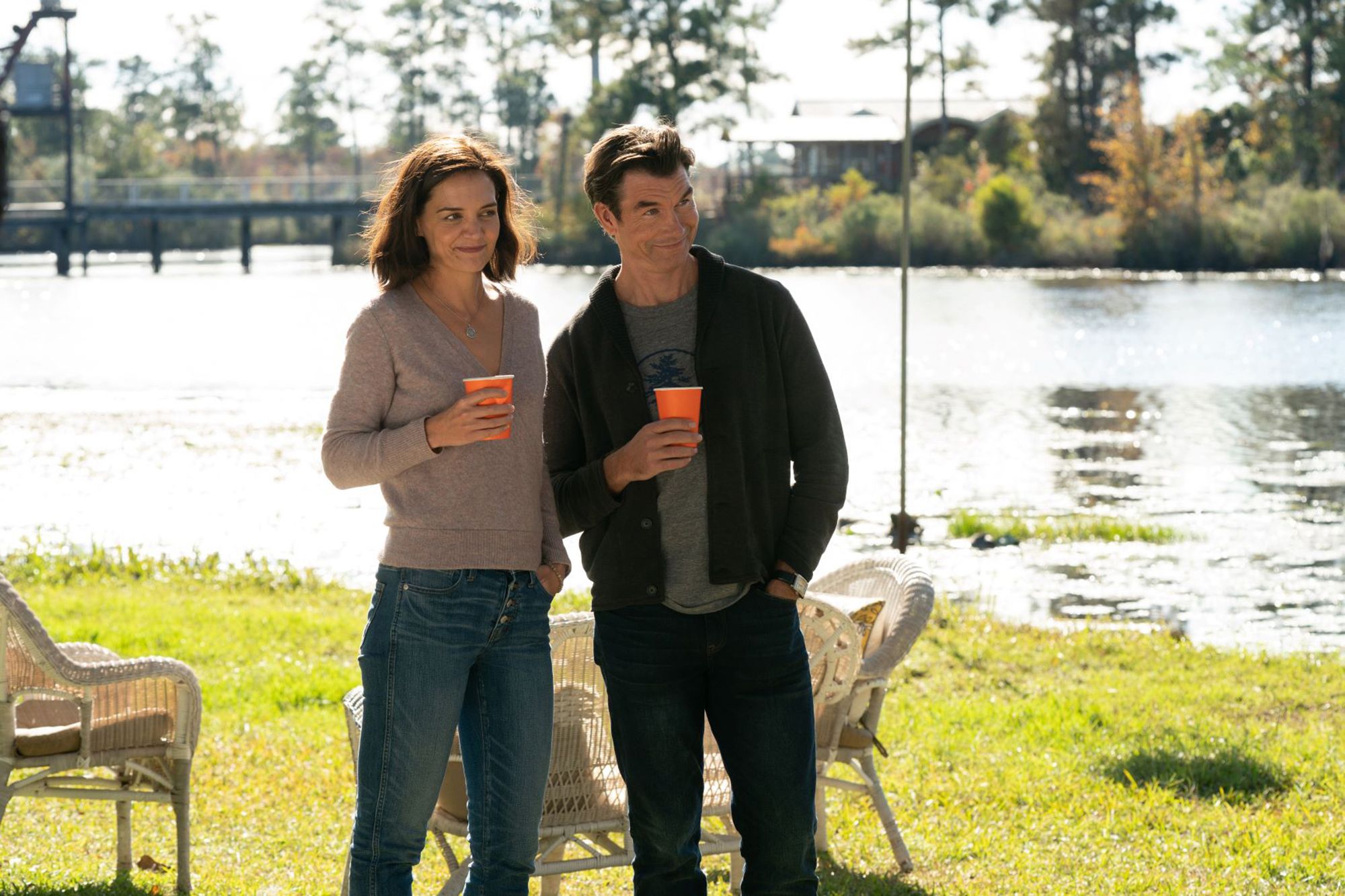
Film Review: The Secret
Film Reviews
The Secret: Dare to Dream
Director: Andy Tennant
Illustration Productions and Covert Media
Streaming on Video on Demand 7.31
It’s a little known fact that every two-to-three years, Matthew McConaughey becomes possessed by the ghost of Paul Lynde, and he makes movies under the pseudonym of Josh Lucas.
In the interest of fairness, I must admit that I only just now made up this fact. But if Rhonda Byrne can publish and sell The Secret as if the generic and inane truisms in it are anything new, and it can become a sensational bestseller, then people will believe just about anything. That being said, it’s still difficult to fathom that anyone thought the idea of loosely adapting a silly self-help book into a narrative feature film was an idea that was going to work.
The Secret: Dare To Dream is a treacly story about a young widow named Miranda Wells (Katie Holmes), who is struggling to raise three children. One fateful night, a powerful storm brings both new challenges and a mysterious stranger named Bray (Lucas) into her life. Bray’s presence and his belief in the power of positive thinking re-ignites the family’s hope, but he carries a secret (the title works on so many different levels) which could change everything.
Director Andy Tennant (Hitch, Ever After, Sweet Home Alabama) has been working behind the camera for a very long time and is a reliable enough hired gun. He does his best with the material, and, honestly, when the movie is just concentrating on being a feel-good romantic dramedy, it’s disposable but watchable. Lucas is a likable enough presence, and this kind of light material seems like a perfect vehicle for Holmes.
But then when we least expect it, the film offers up a painful moment where Bray starts preaching philosophies from the book as if the multiple screenwriters have just done a “cut and paste” to insert passages into his dialogue. As a result, his character plays like Pollyanna as portrayed by Professor Harold Hill after having become a Scientologist. It’s not just forced—it really has nothing to do with the story itself.
But worst of all, Bray’s life coaching backhandedly places the blame for the difficulties in Miranda’s life squarely on her shoulders for the unthinkable crime of doing her best to make things work instead of just singing “The Sun Will Come Out Tomorrow” day and night. If this character had been a negative sad sack wallowing in self pity, it might be different, but she’s a good person doing her best. An optimistic spirit and perseverance are great qualities that can indeed help you to a happier life, but the doctrine that says you can literally have anything you want if you just “will it” hard enough isn’t just ignorant, it’s damaging and irresponsible.
This is the second studio release this summer—the other being Paramount’s Mighty Oak—to try to adapt the tropes of Christian niche market filmmaking into generic spirituality for the mainstream, and it’s a very unwelcome trend. The films they are trying to mimic are not good at all and only appeal to a select crowd that will watch anything if it’s based in faith. No amount of watering them down or dressing them up with better actors and higher production values can turn them into something worthwhile.
But if you loved the book and think I’m wrong in my assessment of its teachings, go ahead and give it a try. However, no amount of “positive thinking” will make enough people spend $19.99 per rental on this movie to make it a hit. –Patrick Gibbs